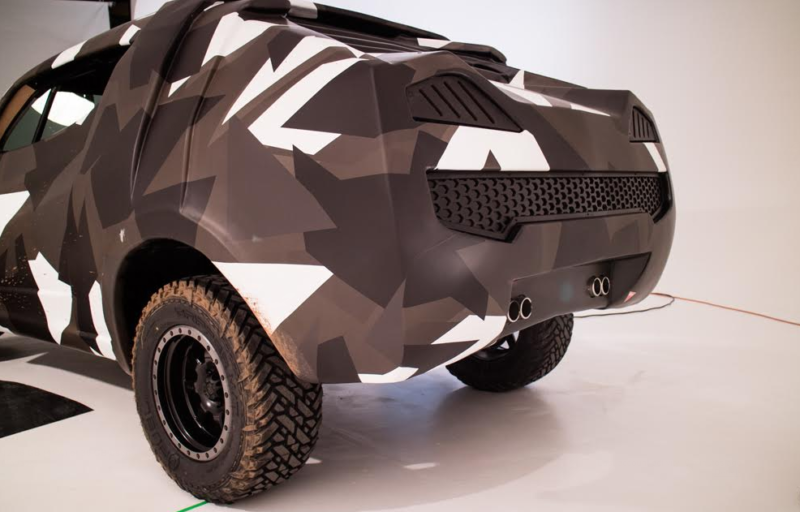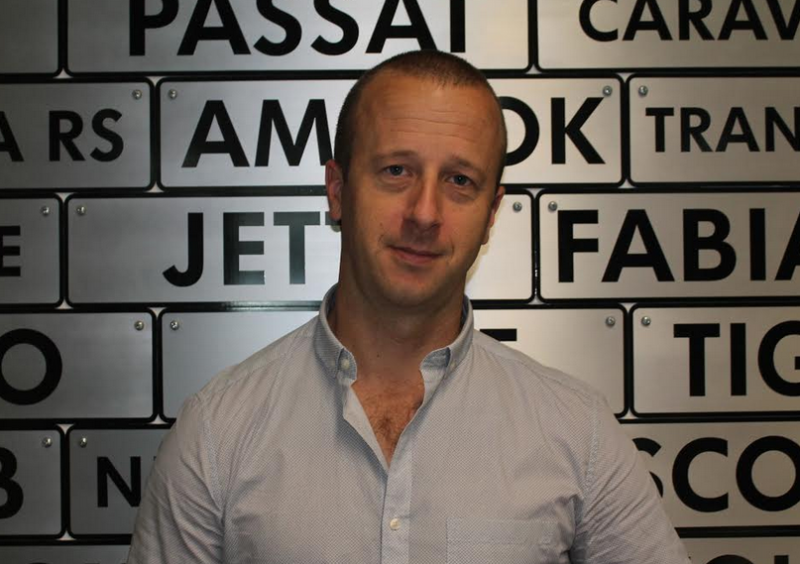Volkswagen as Lazarus – a brand back from crisis, but TV may not be a big part of its future
Volkswagen, a brand some were predicting could never recover after the global scandal over faked emissions tests, appears to be bouncing back despite its admission there remains much to be done to rebuild faith in the brand.
Ralph Beckman, marketing manager for Volkswagen commercial, said that the company had invested in research to understand the scale of the impact of the emissions scandal on the minds of consumers.
He said that even though there was concern about the issues at a global level, local research revealed the impact on the merit of the brand and its products was not as deep as they feared.
“Late last year we commissioned some research to get our head around what has been the impact of the issue,” Beckman told Mumbrella.
“As part of the research that was conducted locally here one thing that transpired was whilst there was certainly some negative sentiment to the brand people still appreciated the product.”
He said that although there was a level of disquiet in the market around Volkswagen’s subterfuge on its diesel emissions, VW owners remained supportive of the brand overall.
“People still understood that the product is solid and the product is great and people were hard pressed to say, okay if you weren’t buying your next Volkswagen, what would you buy?”
The brand’s approach to marketing took an interesting direction with advertising for the Amorok ute this year as the process of recovery began.
With VW trying to get greater traction in the burgeoning ute sector – with a growing number of SUVs sold in Australia now utes – the company decided to strip the brand away from the car and allow it to be sold purely on its product merits.
The result was a campaign for the Amarok which launched at the beginning of the year, Naked Ute, created by VW’s agency DDB in Sydney, which focused on changing the perception that VW was not able to make a tough ute.
“We peeled the brand off altogether and we created a platform for this car where the product would do the talking and convince people on its own merit rather than people thinking that we’re really good at making clever small cars, but what would we know about making utes,” Beckman said.
Naked Ute was followed later in the year by the launch of the ‘Kamora’, aimed at promoting the V6 variant of the car, it also was unbranded and showed off a prototype designed by the architect of the cars in the Mad Max series of movies.
Amarok is now VW’s second highest selling car behind the Golf.
He said that the campaigns had been designed to be disruptive, and while TV remained a part of VW’s overall marketing plans, it would be less and less so in the future.
“The disruption part, the look of the vehicle, in Naked Ute as well as ‘Korama’, the thinking is obviously especially in the social media space is as it appears in your feed, it makes you stop and interrupts you scrolling through your feed.”
https://www.youtube.com/watch?v=O0bUGdv12P8
He said that such an approach on TV “falls victim to the sequel syndrome”, which could be avoided in digital with retargeting.
In September the Australian Competition and Consumer Commission announced it was taking action in the Federal Court over VW’s use of “defeat software” used to register lower emissions readings during testing than the cars record in real life.
The case is expected to be heard midway through next year.
But in the meantime – and even as more cars are recalled for a software fix – the brand appears to be rallying.
Independent research firm YouGov’s tracking of the brand over the past year shows shows the overall score of perceptions around it have recovered from indexing at the start of the year to plus 10 just a fews days ago.
Buzz around the brand – largely social media sentiment and talkability, either positive or negative, has come from below negative 15 at the end of last year to zero earlier this month.
Tony Jaques, head of corporate crisis management experts Issue Outcomes, said while many brands might consider rebranding after such an issue on such a global scale, Volkswagen would not suffer such a fate.
“It does not happen often, that a brand feels compelled to change, and I think brands such as Volkswagen and Toyota which have had brand crises are a good example of that,” Jaques said.
Asked where the brand stood at the end of a year, Beckman said he believed it was in a good place.
“Is there still some ill-feeling toward the brand out there? Yeah, there probably is and we certainly have a job to rebuild some trust,” he said.
Prior to what one Volkswagen staff member called “the unpleasantness”, Volkswagen in Australia was the first car-maker to appoint a customer experience director.
His reporting to the company has been that where once small indiscretions, such as a smudged car returning from a service used to to be forgiven, the broader issues faced by the brand now made customers notice such things.
Beckman said that campaigns such as the Amarok work during the year were rebuilding faith across the business.
“Our job will be to work across all areas of the business and I think that a very instrumental department is Jason’s department, which is dedicated to the customer experience from the sales and the after sales space at every touchpoint.
In January, VW’s media schedule for the “Korama” will shift from purely digital to TV, but Beckman said the way in which buyers were now going about purchasing cars meant the medium was becoming less important to a successful marketing strategy.
“We have all the metrics for Naked Ute obviously and the early metrics for this campaign – and they are by no means finalised are smashing the magnitude metrics,” he said.
“The most engaging piece that we featured for Naked Ute had about 430,000 views. The first piece we put out for ‘Korama’ is now on the other side of 650,000, with probably three or four times the number of shares and comments as well. Naked ute was the benchmark at media level.”
Globally, VW ended an 18-year relationship with Mediacom, handing the business to PHD earlier this year, and Beckman said the agency was creating new ways to target audiences.
“We are also looking for fresh approaches to make a limited budget go further and also in light of declining TV audiences we need to find more innovative ways of reaching that sort of number of people but hopefully in a far more targeted way.
“TV, as you know, has a lot of wastage in there – you can be targeted in your programming and your flighting; however, I personally see on the digital side there is far more room for innovation and being targeted and getting the most relevant audiences in a very effective way.”
Sales have dipped slightly across the models, although Amarok is growing, and the company blames some of this on run out on the old Tiguan SUV models before marketing began for the new car in September.
The ad for the car attracted the attention of the Advertising Standards Board after it featured a young girl sitting in the back seat, her existence being ignored by her parents. The ad ran with the line ‘Easy to Forget it’s a Family Car’.
The complaints to the ASB were dismissed.
With a number of models rolling over to new models, and several versions discontinued this year, Beckman is happy with the results, with overall sales across commercial and passenger to November down from 55767 last year to 52,006.
For Volkswagen, he believes, the brand is back on track.



